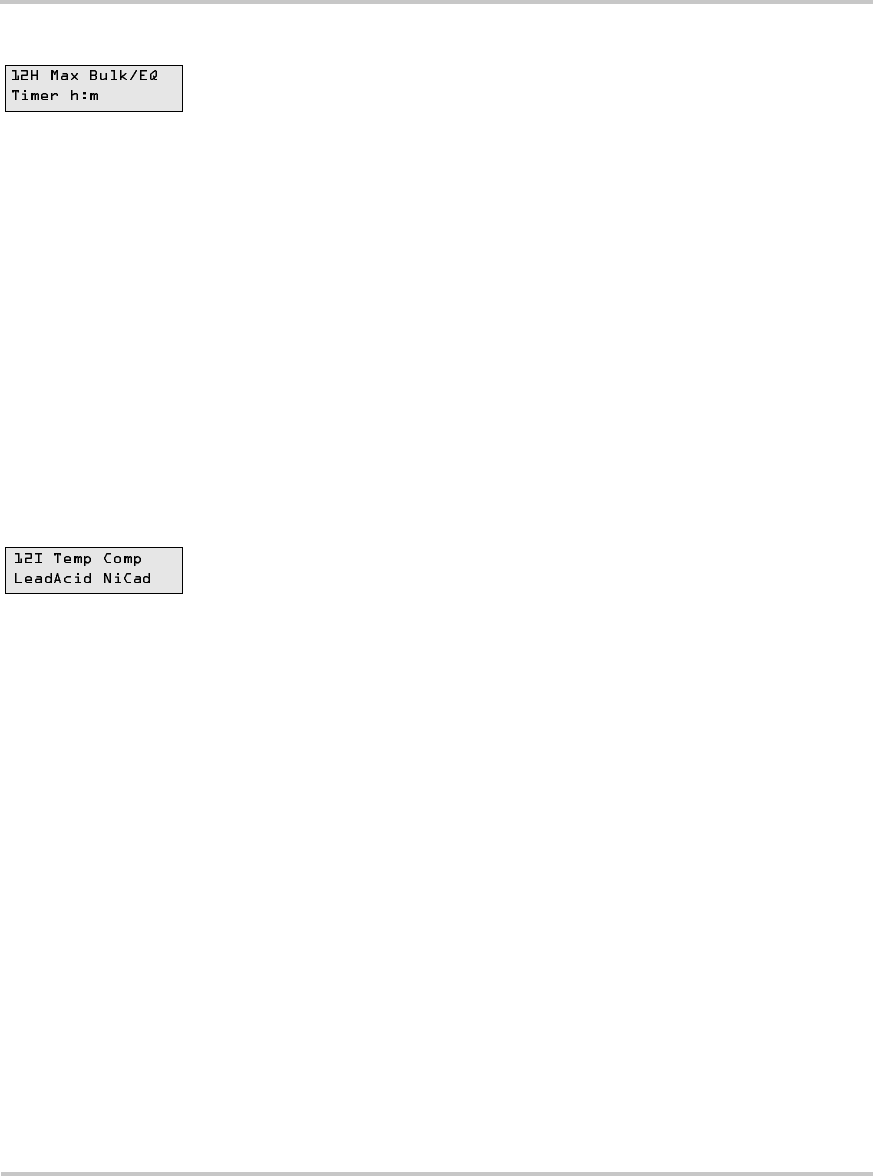
Menu Item Descriptions
976-0043-01-02 6–25
12H Max Bulk/EQ Timer h:m
This is the maximum time the charger is allowed to keep the batteries in
the Bulk or EQ Charge Stage. This timer starts when either the Equalize
Charge starts or when the Bulk Charge starts. Ensure this setting doesn't
interfere with the 12G EQ Vdc Done Timer h:m or the 12F Bulk Done
Amps AC settings.
Guidelines for setting this menu item:
• Check menu item 04J Max Bulk/EQ Time h:m (see page 8–24 for
information) for the amount of time the charger has been in the Bulk
or EQ charge stage.
• This is a safety feature ensuring that abnormal conditions (e.g., DC
loads connected to the batteries) will not cause the battery charger to
hold the batteries at high voltage levels for prolonged periods of time.
As a protection feature, this timer overrides settings programmed in
12F Bulk Done Amps AC and 12G EQ Vdc Done Timer menu
items.
12I Temp Comp
This menu item provides for the selection of the appropriate temperature
compensation for your particular battery type. Temperature compensation
reduces the battery charge voltage when the environmental temperature is
hot to prevent battery over-gassing or overcharging. In cold temperatures,
the voltage is increased to assure complete battery charging. Temperature
compensation only occurs if the BTS is installed.
The BTS automatically fine tunes the charging process of the SW Plus
inverter.
When the BTS is installed, the battery charging set points (12B Bulk
Volts DC, 12C Float Volts DC, and 12D Equalize Volts DC) are
automatically adjusted based on the temperature of the battery being
25 °C (77 °F). Actual charging voltage may vary above or below these
setting due to adjustments for battery temperature.
The Sine Wave Plus inverter adjusts the bulk, float, and equalizing set
point by 60 mV for 24 Vdc systems and 120 mV for 48 Vdc systems per
degree Celsius for the “LeadAcid” temperature compensation setting. For
the “NiCad” setting, the inverter adjusts the set points by 40 mV for
24 Vdc systems and 80 mV for 48 Vdc systems per degree Celsius.
If the wiring to the sensor is damaged and the wires are shorted or cut, the
inverter will charge at non-temperature compensated settings and the
inverter may not charge as expected.
